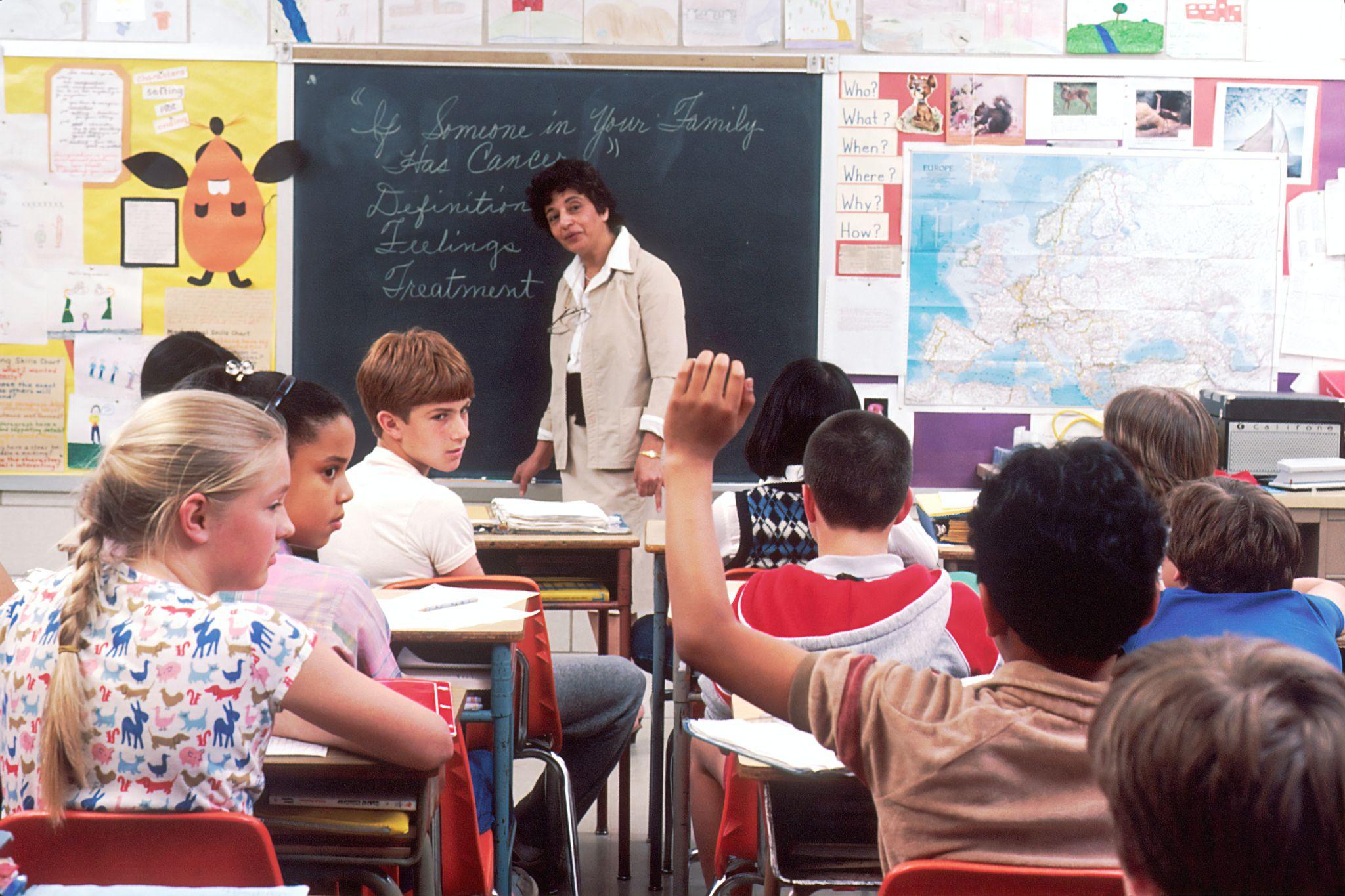If you feel teaching is your calling, the first thing you need to do is learn about the most important steps to becoming a teacher. You need to decide what would be the best path for you and what type of teacher you’d like to become.
In this guide, we will outline the essential steps to becoming one. From obtaining a degree in education and a teaching license to gaining practical experience in a classroom setting and continuing education, we will cover everything you need to know to start your career in education.
We’ll also discuss the key qualities and skills you need to possess to be a successful teacher, as well as the job outlook for teachers in the United States.
So, let’s get started!
Key Takeaways
- Steps to becoming a teacher include obtaining a degree in education, gaining practical experience in a classroom setting, obtaining a teaching license, and continuing education.
- Gaining practical experience in a classroom setting is necessary to become a teacher and can be accomplished through internships, practicums, or student teaching programs.
- Steps to becoming a teacher include obtaining a teaching license, which is required to teach in public and many private schools in the United States and involves completing a teacher preparation program, passing state certification exams, and meeting state requirements.
- Continuing education is important for teachers to stay up-to-date with the latest teaching methods, technology, and research, and can be achieved through graduate programs, professional development workshops, online courses, or conferences and seminars.
Should You Become a Teacher?
Becoming a teacher can be a rewarding and fulfilling career choice for many people. It provides an opportunity to make a positive impact on students’ lives and help shape the next generation. However, before embarking on this journey, it’s important to ask yourself if this profession is right for you.
Steps to becoming a teacher also include checking if you possess certain qualities such as patience, creativity, and a passion for learning. You must also have strong communication skills and the ability to work well with others, including students, parents, and fellow educators.
The process of becoming a teacher typically involves obtaining a bachelor’s degree in education, which takes about four years, so if you’re interested in how to become a teacher without a degree, it’s probably not possible in an official capacity.
Additionally, you may need to complete a teacher preparation program and pass state certification exams.
Although this may seem like a lengthy process, there are many benefits to teaching. The job prospects for teachers are promising, with a projected 4% growth rate in employment over the next decade.
Salaries vary depending on location and level of education, but most teachers enjoy a competitive salary and benefits package. Additionally, teachers often have summers off, which is a great perk of this profession, enabling you to take proper time off to rest.
However, teaching also has its challenges. Educators must manage a range of student needs and behaviors and be able to adapt and modify their teaching strategies accordingly.
The workload can also be demanding, with long hours spent on lesson planning and grading. Despite these challenges, becoming a teacher is a significant commitment but one that can be incredibly rewarding.
Step 1 to Becoming a Teacher – Get a Degree
First of the steps to becoming a teacher is, naturally, obtaining a degree in education. You can get a bachelor’s or master’s degree, depending on your aspirations and career goals. You should also carefully consider the level at which you’d like to teach.
Here are some options to consider:
- Bachelor’s Degree in Education. For aspiring teachers, this is the most common degree, and it typically takes four years to complete, covering the main teaching methods and educational theory. You may be required to specialize in a particular subject area or grade level, depending on what you choose to focus on during your studies.
- Master’s Degree in Education. Getting a master’s degree is nowadays, in some places, often a mandatory step to becoming a certified teacher after you’ve completed your bachelor’s degree. The program typically takes two years to complete, and the curriculum includes advanced lessons in teaching methods and practical theory.
- Master’s Degree for Elementary School Teachers. This program is ideal for future teachers who would like to teach in elementary schools. It will take you two years to complete it, and it provides specific instructions in various subjects like math, language, science, and more.
- Master’s Degree in Physical Education. If you’re more interested in teaching physical education or coaching sports, you might consider a master’s degree in physical education. The program also lasts two years, and you will be focusing on exercise science, coaching methods, and sports psychology.
Additionally, it’s very important to research your options and choose a program that aligns with your goals and interests.
Double-check if the program is accredited by the National Council for Accreditation of Teacher Education (NCATE) or the Council for the Accreditation of Educator Preparation (CAEP). These organizations are making sure the teacher education programs meet high standards of quality and effectiveness.
Step 2 to Becoming a Teacher – Get Experience
The second of the steps to becoming a teacher is having practical experience in a classroom setting before they can apply for a teaching position. This experience can be gained through a variety of options, such as internships, practicums, or student teaching programs.
Here are some of the options for gaining classroom experience:
Internships
Many schools and districts offer internships for aspiring teachers. These programs typically involve working with a mentor teacher and assisting with classroom activities. Internships may be paid or unpaid, depending on the school or district.
The length of the internship can vary from a few weeks to an entire school year.
Practicums
A practicum is a short-term teaching experience that allows you to work with a small group of students under the guidance of a certified teacher. Practicums typically require a commitment of 20–30 hours per week for several weeks.
Practicums can be a great way to gain experience in a specific subject area or grade level.
Student Teaching Programs
Student teaching programs are the most comprehensive option for gaining classroom experience. These programs typically last for a full semester and involve working with a mentor teacher to plan and deliver lessons to a classroom of students.
Student teaching programs are usually unpaid, but they provide valuable experience and may lead to a job offer after graduation.
How to Get Classroom Experience
To gain classroom experience, aspiring teachers can reach out to their local schools and districts to inquire about internship, practicum, or student teaching opportunities.
It’s important to ensure that the program is accredited and that you will have the opportunity to work with certified teachers and gain hands-on experience in a real classroom setting.
The classroom experience is crucial for aspiring teachers. Most schools and districts require applicants to have a certain number of hours of classroom experience before they can be considered for a teaching position.
Classroom experience allows future teachers to learn about the practical aspects of teaching, work with students, and get a feel for what it’s like to be a teacher every day.
Step 3 to Becoming a Teacher – Obtain a Teaching License
After completing a degree in education and gaining practical experience in a classroom setting, the next step to becoming a teacher is to obtain a teaching license. This license is required to teach in public schools and many private schools in the United States.
A teaching license is an official document that certifies that you meet the state’s requirements for teaching. It ensures you have the necessary knowledge and skills to educate students in your subject area and grade level. A teaching license also maintains standards of quality and safety in the classroom.
How to Get a Teaching License
The process of obtaining a teaching license varies from state to state but generally involves the following steps:
- Complete a teacher preparation program. As discussed in the previous section, completing a teacher preparation program is an important step toward obtaining a teaching license.
- Pass state certification exams. Most states require teachers to pass a certification exam in their subject area and grade level. These exams typically cover topics such as teaching methods, educational theory, and subject-specific content.
- Meet state requirements. The prerequisites for acquiring a teaching license vary by state. These requirements may include completing a criminal background check, fulfilling a certain number of hours of professional development, and demonstrating proficiency in a second language.
- Apply for a teaching license. Once you have met the state’s requirements, you can apply for a teaching license. This involves submitting an application, paying a fee, and providing documentation of your education and certification exam scores.
Keep in mind that the cost of a teaching license varies from state to state but generally ranges from $50 to $200. Some states also require teachers to renew their licenses periodically, which may involve additional fees.
While the length of a teaching license varies, it generally lasts for three to five years. Teachers must renew their license before it expires by completing additional professional development hours and/or passing additional certification exams.
Step 4 to Becoming a Teacher – Continue With Your Education
Steps to becoming a teacher include perpetual learning. Becoming one is just the beginning of a career path that offers endless opportunities for growth and advancement. Continuing education is an excellent way for teachers to stay up-to-date with the latest teaching methods, technology, and research.
It also allows teachers to specialize in a particular subject area or grade level, which can lead to higher salaries and increased job opportunities.
Continuing education is crucial for teachers because it allows them to improve their teaching skills, stay current with the latest research and trends, and provide their students with the best possible education. It also helps teachers stay motivated and engaged in their work by providing opportunities for professional growth and development.
There are many different options for continuing education for teachers, depending on their interests and career goals.
Here are a few options to consider:
- Graduate Programs in Education: A graduate degree in education can provide teachers with advanced knowledge and skills in their subject area or grade level. It can also lead to higher salaries and increased job opportunities.
- Professional Development Workshops: Many schools and districts offer professional development workshops for teachers on topics such as technology, classroom management, and curriculum development.
- Online Courses: Online courses can be a convenient and flexible way for teachers to continue their education from anywhere at any time.
- Conferences and Seminars: Attending conferences and seminars can provide teachers with opportunities to learn from experts in their field, network with colleagues, and explore new teaching methods and strategies.
Final Thoughts
Becoming a teacher requires obtaining a degree in education, gaining practical experience in a classroom setting, obtaining a teaching license, and continuing education.
It is a rewarding career that offers endless opportunities for growth and advancement. Although challenging, the rewards of teaching are many, including the opportunity to make a positive impact on students’ lives and help shape the next generation.
To be successful in this profession, it is essential to possess the necessary qualities and skills, including patience, creativity, and a passion for learning.
If you are considering becoming a teacher, take the time to research your options and choose a program that aligns with your goals and interests. With hard work and dedication, you can become a successful and inspiring teacher.
Steps to Becoming a Teacher
#1. How long does it take to become a teacher?
Becoming a teacher typically involves obtaining a bachelor’s degree in education, which takes about four years. Additionally, you may need to complete a teacher preparation program and pass state certification exams to become certified.
#2. What do I need to become a teacher?
To become a teacher, you usually need a bachelor’s degree in education, a teacher preparation program, and a teaching license. Additional practical experience in a classroom setting is also important.
#3. What is the fastest way to become a teacher?
The quickest route to becoming a teacher is by completing an alternative teacher certification program, which can take as little as one year. This option is available to individuals with a bachelor’s degree in a field other than education.
#4. What skills do teachers need?
For teachers, it’s essential to have qualities such as patience, creativity, and a passion for learning. They must also have strong communication skills, the ability to work well with others, and the capacity to adapt and modify their teaching strategies to manage a diverse range of student needs and behaviors.
#5. What’s the job outlook for teachers?
Depending on the region and area of specialization, different teachers have different employment prospects. However, there is a high demand for teachers in specialized fields such as math, science, and special education.














